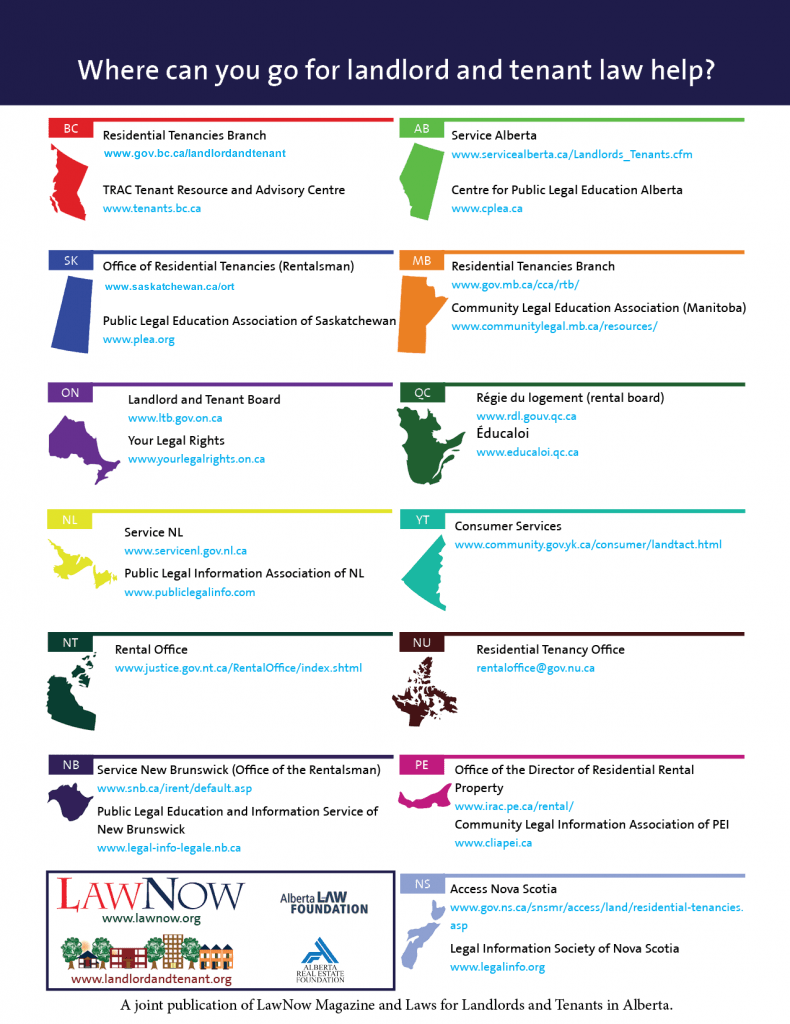 There are a lot of different notices that a landlord can serve on a tenant. The notices that we receive the most questions about are the eviction notices. We’re going to talk about eviction notices that are given where there is fault being alleged by the landlord. In other words, the landlord is saying that the tenant has done something wrong, so now the landlord wants the tenant to move out. In some provinces, landlords can serve eviction notices that provide a date when the tenant must move out. Other provinces don’t allow individual landlords to evict tenants. In those provinces, landlords must serve a notice of hearing instead. Then both the landlord and the tenant go to the hearing and a 3rd party (such as a judge or tribunal) decides if the tenant should move or not.
There are a lot of different notices that a landlord can serve on a tenant. The notices that we receive the most questions about are the eviction notices. We’re going to talk about eviction notices that are given where there is fault being alleged by the landlord. In other words, the landlord is saying that the tenant has done something wrong, so now the landlord wants the tenant to move out. In some provinces, landlords can serve eviction notices that provide a date when the tenant must move out. Other provinces don’t allow individual landlords to evict tenants. In those provinces, landlords must serve a notice of hearing instead. Then both the landlord and the tenant go to the hearing and a 3rd party (such as a judge or tribunal) decides if the tenant should move or not.
If you’ve been served with an eviction notice, what should you do?
Read and understand the notice
Evictions are different in each province, and there are often different kinds of evictions in the same province. This means that it can be confusing to know what kind of notice you’ve actually been served with. Make sure you read the notice carefully. Is it a warning notice? Are there any steps that you need to take right away? What’s the reason the landlord wants you to move out? If you read the notice and don’t know what to do next, then you should call someone to help you. There is a list of organizations that can help you at the end of this article.
Pay attention to timelines
Is there something that you have to do before a certain date? If you want to fight an eviction, you may have to respond in writing to the landlord or tribunal. You need to know how many days you have to respond. If you think that you need someone to help you with the paperwork, then you should start contacting organizations right away. If you wait and do not contact someone for help until the day before you are supposed to move or attend a hearing, there probably won’t be enough time for them to actually help you.
Eviction notices will usually include a date that you have to move out by, or a date to attend a hearing. If you don’t take any steps to deal with the eviction before that date, then your landlord might be able to take additional steps against you. For example, if you are supposed to move out by a certain day, but don’t, then you can be ordered to pay more money to the landlord to cover the rent cost for the period of time that you overstayed. Your landlord might also be able to get an immediate possession order. This means that you would have to move out immediately, and the locks can be changed.
Find out what the law says
The reality is, until you know what the law says about evictions, you don’t know where you stand. You need to find out exactly what the eviction procedure is in your province and the reasons why a landlord can evict a tenant.
Sometimes landlords make mistakes and give notices for things that they are not actually allowed to evict someone for. Sometimes a landlord serves the notice improperly. Sometimes tenants have not done anything wrong. Sometimes a tenant has done something wrong, but eviction is too harsh a response. The reality is, until you know what the law says about evictions, you don’t know where you stand. You need to find out exactly what the eviction procedure is in your province and the reasons why a landlord can evict a tenant. Once you know what the law says, you’ll be able to decide what you want to do next. If the landlord hasn’t followed the law, then you can raise that as part of your defence against the eviction.
We’ve developed an eviction chart for Alberta below. You can see all of the things that must be included, by law, in a 14-day eviction notice. If the landlord didn’t follow the law as he or she should have, the chart explains some options that the tenant has for next steps.
Click here for a printable PDF version.
![]() This column was produced with the generous support of the Alberta Real Estate Foundation.
This column was produced with the generous support of the Alberta Real Estate Foundation.



